There’s no question that Honda, Mercedes-Benz, Volvo and Toyota dominate the standings in the Junkyard Gem Intergalactic Odometer Hall of Fame, and I don’t even bother to document most of the Camrys and Accords I find with better than 300,000 miles showing on their odometers. Subarus that have attained the 300K-mile mark are much rarer in the car graveyards I frequent, though, with only a 319,554-mile first-year Impreza in this series prior to today. Today’s Junkyard Gem blows past that record, with a final mileage figure that came close to 350,000 miles.
Keep in mind that Subaru didn’t start using six-digit odometers in most of its U.S.-market vehicles until 1980, and the Justy got a five-digit odometer through 1992. For the 21st century, Subaru went to electronic odometers that require ECU power to display a reading (this can be done in the junkyard, but it’s a hassle). All that means that the pool of junkyard Subarus that have readable-at-a-glance mechanical odometers that can show more than 99,999 miles is limited to non-Justys from the 1980 through 1999 model years; I may have walked right past a discarded BRAT or SVX that traveled a half-million miles and not known of its achievement.
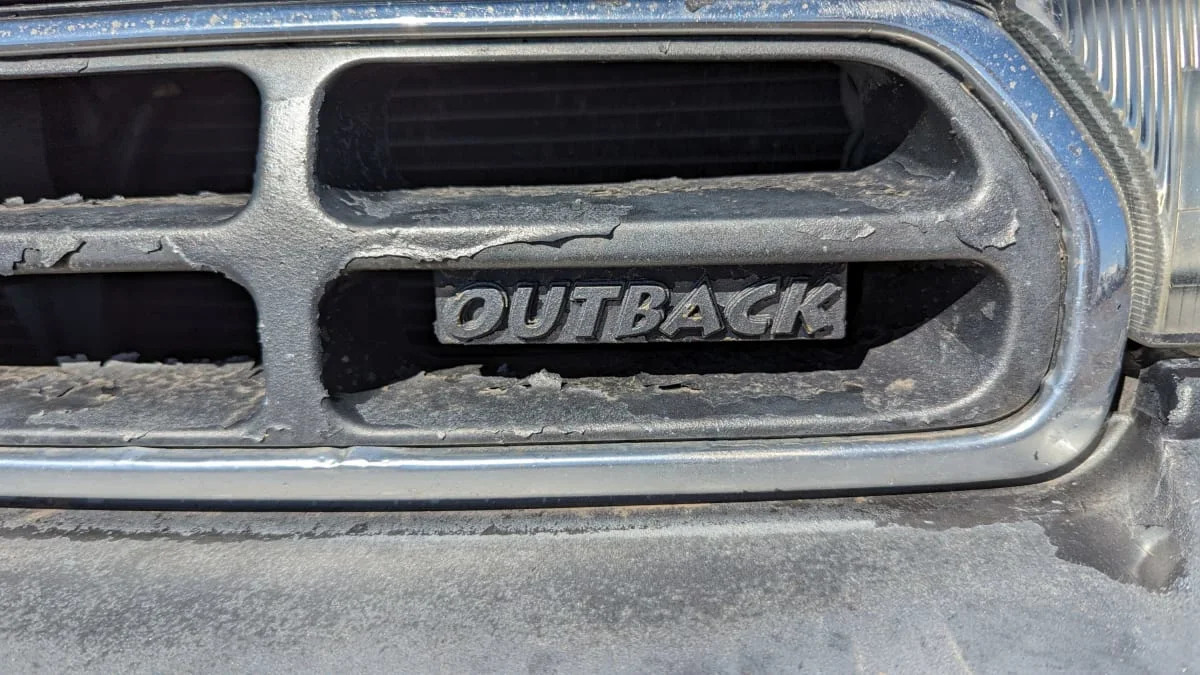
Subaru began using the Outback name on outdoorsified versions of the Impreza and Legacy in the 1995 model year. There was an Outback version of the Legacy sedan as well, which started out being called the Legacy SUS and then became the Legacy Outback sedan for the 2000 through 2004 model years. The first model year for the Outback as a model name in its own right was 2005.
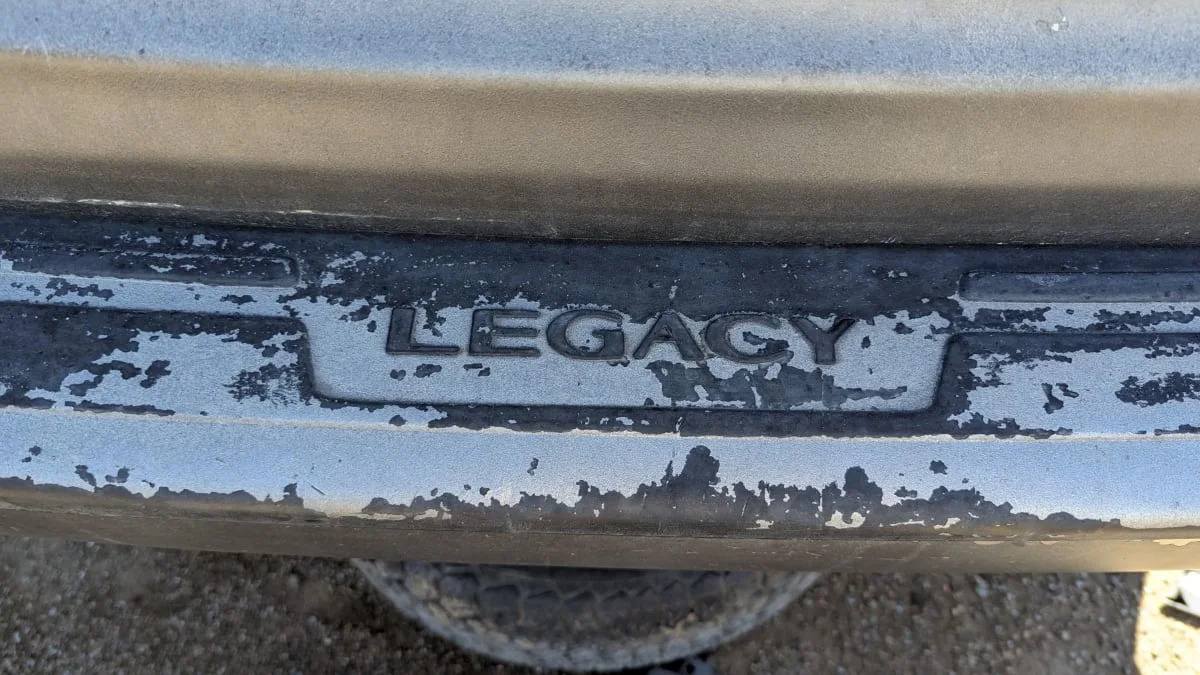
Though the Outback was still a Legacy (officially speaking) through 2004, 1999 was the last year for any exterior badging bearing the Legacy name on these cars. Owner’s manuals and registration documents still used the Legacy name through 2004.
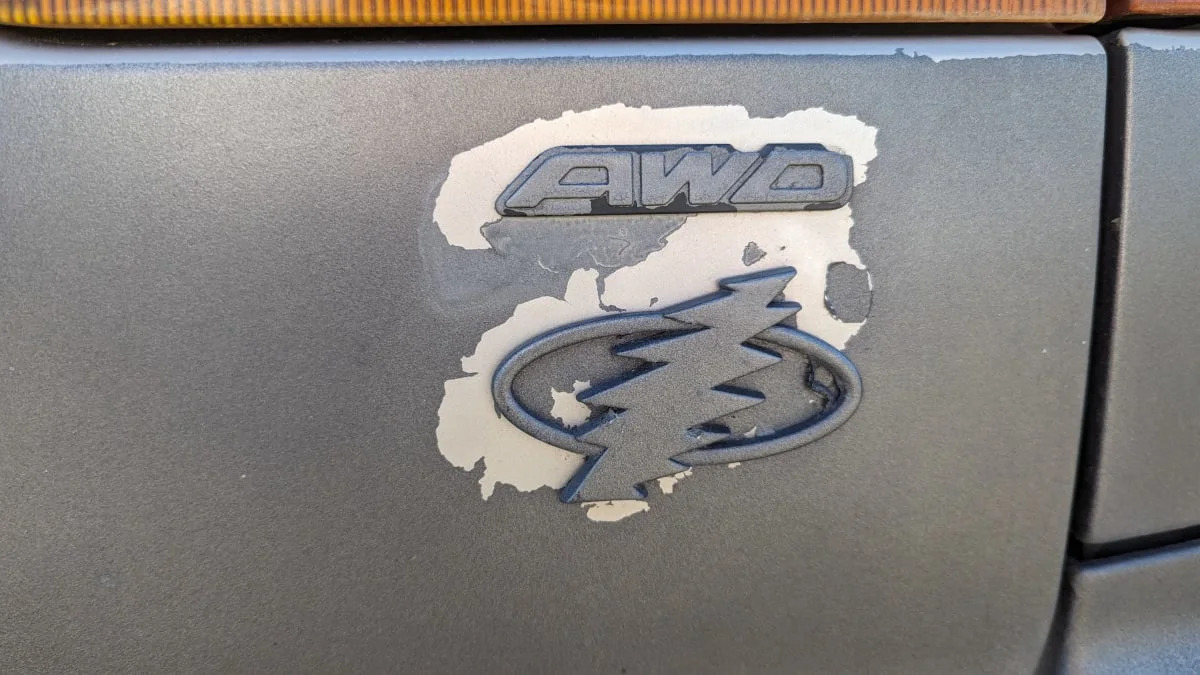
Every new Subaru sold in the United States had all-wheel drive starting with the 1996 model year, but AWD was still unusual enough in 1998 that a bit of badge boasting made sense.
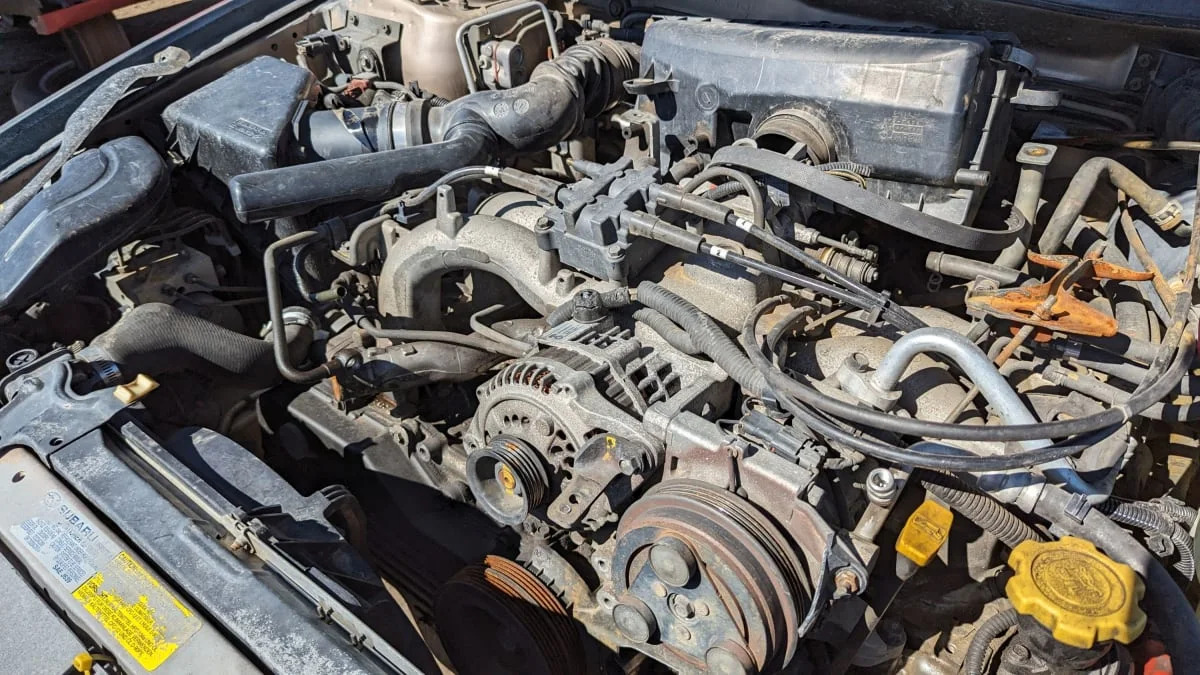
This car came with a 2.5-liter DOHC boxer-four engine, rated at 165 horsepower and 162 pound-feet.
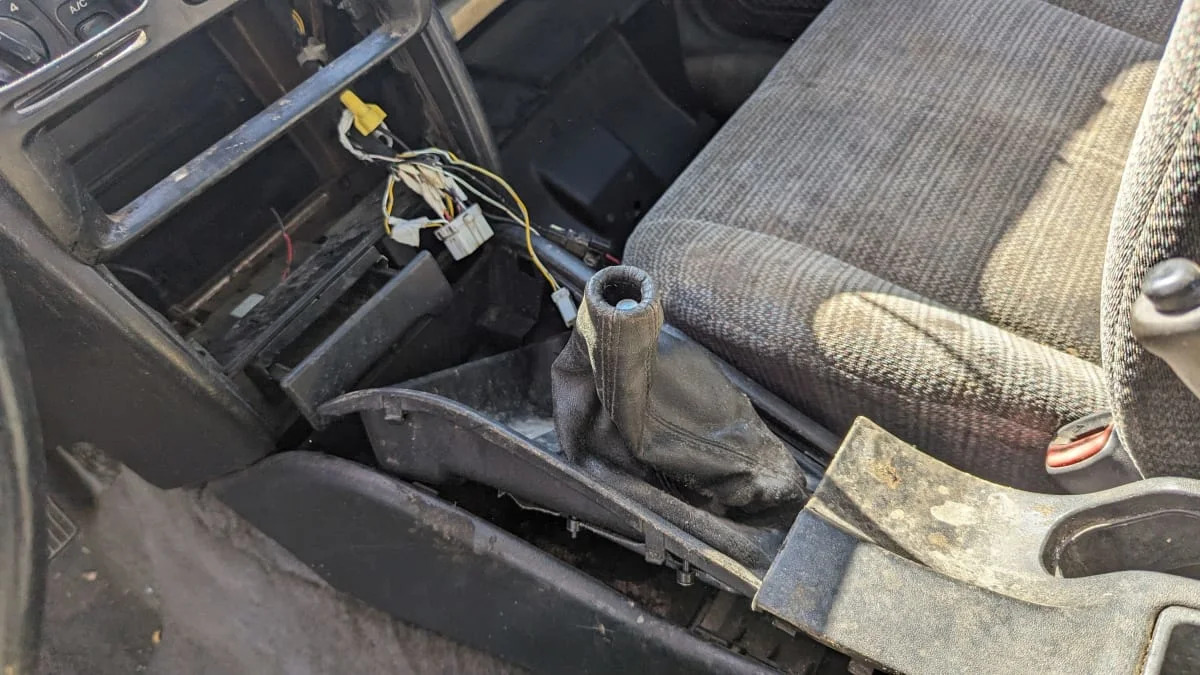
This one has the base five-speed manual transmission, which almost certainly contributed to longevity. Clutch replacements cost a lot in these cars, but nowhere near as much as automatic transmission rebuilds.
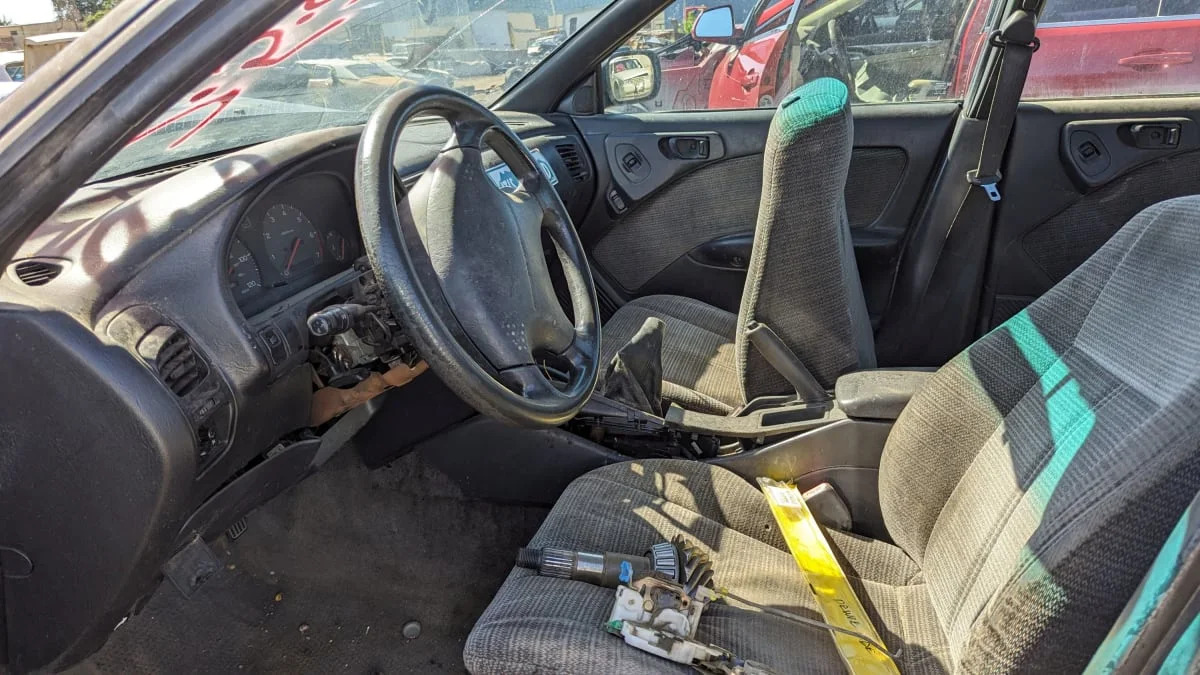
The body has a backyard rattle-can paint job, but the interior looks pretty decent for a car that averaged more than 13,500 miles for every year of a long life. You don’t get to a third of a million miles in a car if you don’t take care of it.
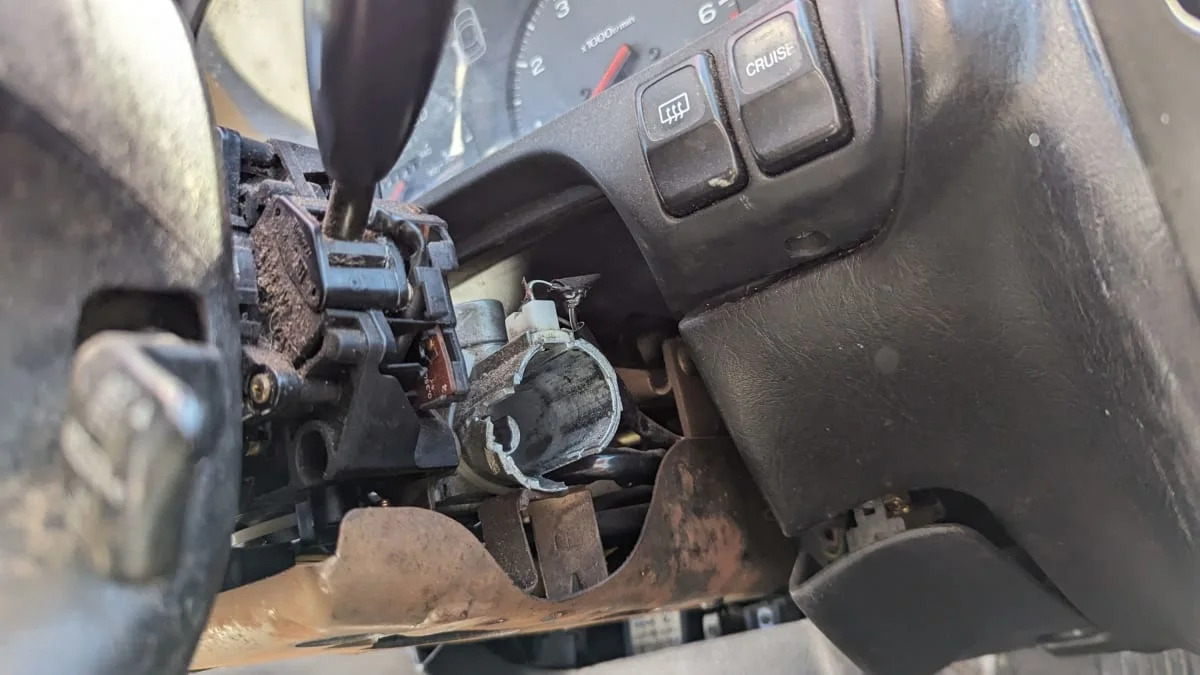
Why is it here, after serving its owner or owners so well for so long? The differential pinion gear sitting on the driver’s seat could be a clue, though it might be from a different car. More telling is the punched-out ignition lock.
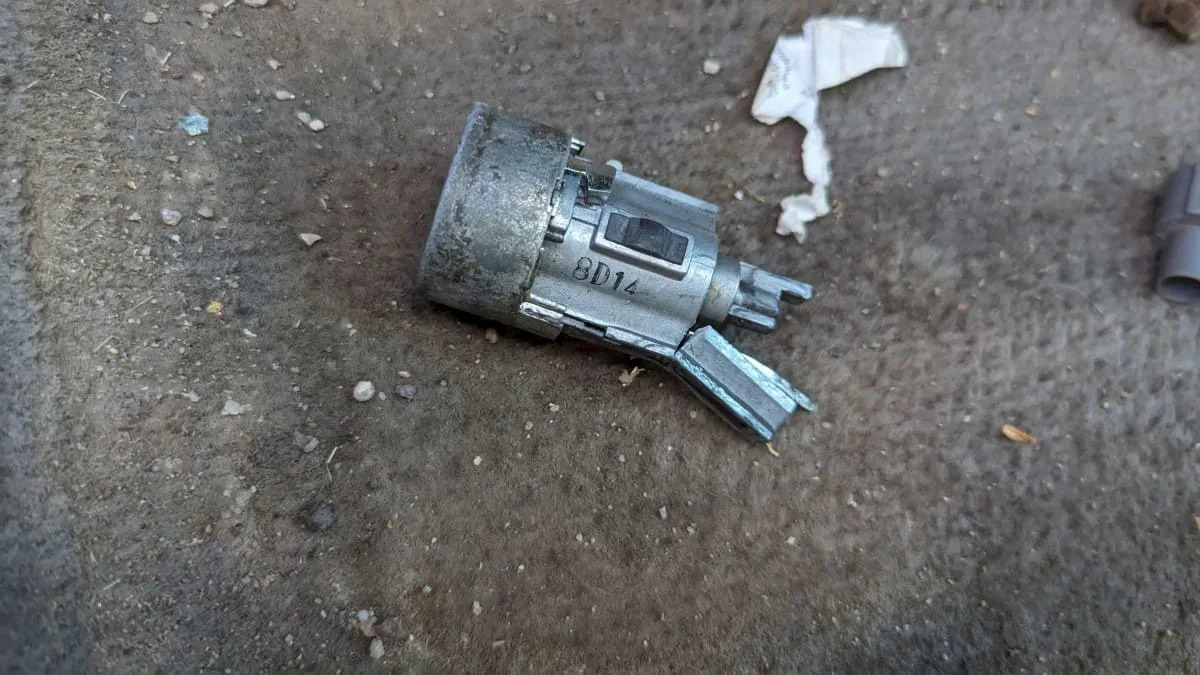
My guess is that a car thief tore out the ignition lock, used a screwdriver to start the car, and then abused it to death in a crime spree. A beat-looking quarter-century-old Subaru with too many pedals and high miles doesn’t have the resale value to be worth fixing when this happens.

In the end, this car served its owner or owners well, so it’s all good.
Don’t even try to catch it with a Detroit SUV!
It’s Crocodile Dundee versus the Lord Humungus.
Not all of the Paul Hogan Legacy Outback ads took place in Australia.
Read the full article here


